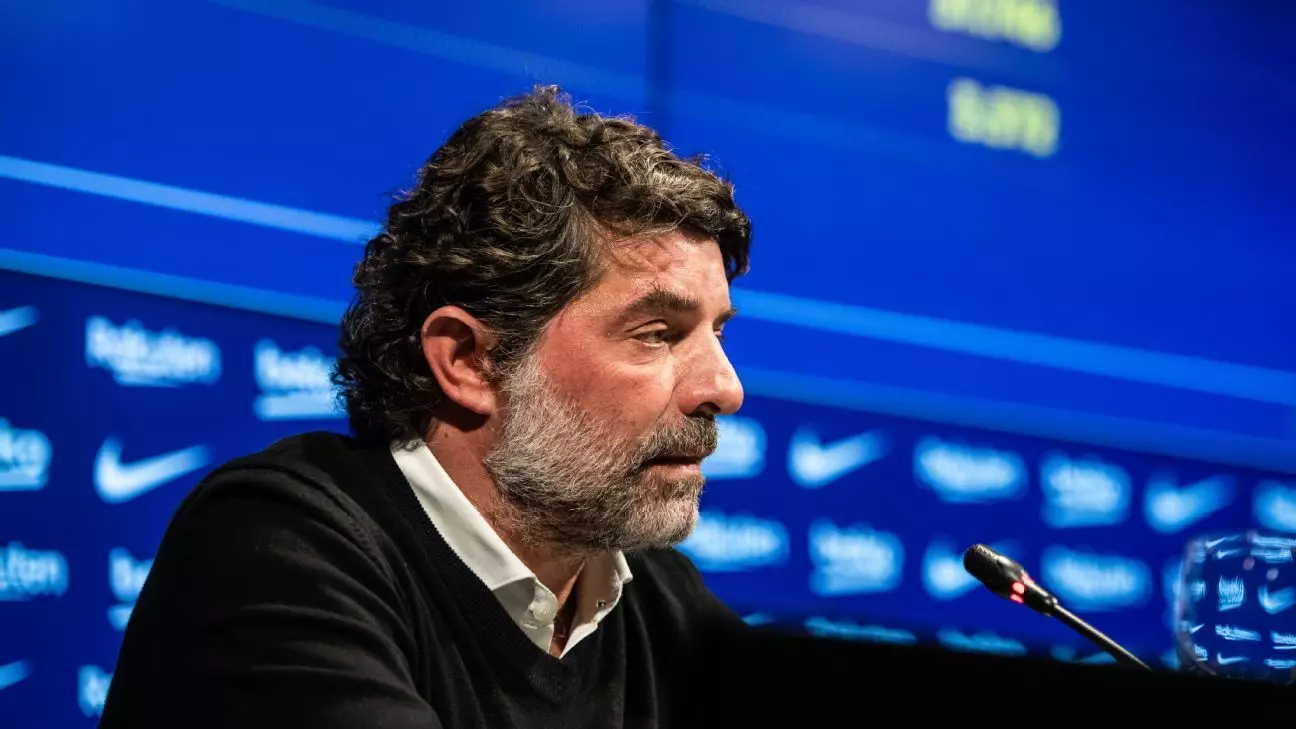In a surprising turn of events, Juli Guiu, the vice president of FC Barcelona, has resigned from his position. The club confirmed his departure in a brief statement, attributing it to “personal reasons.” This announcement came amidst growing tensions surrounding the club’s new lucrative deal with Nike, worth over €100 million annually. Reports suggest that Guiu was at odds with certain terms of the agreement, leading to his eventual sidelining in negotiations and raising concerns regarding commission payouts to intermediaries involved in the contract.
The new partnership with Nike, celebrated as the largest deal of its kind in football, has been a significant point of contention. Although it promises to bolster Barcelona’s financial stability, the details have ignited discord amongst club officials. Guiu’s dissent primarily revolved around how the negotiations were conducted and the compensation related to the agent who brokered the deal, Darren Dein. His resignation speaks volumes about the internal divisions at the club, particularly about how such monumental contracts are managed and the transparency—or lack thereof—within the decision-making processes.
Since joining Barcelona’s board in 2021, Juli Guiu has been a pivotal figure in the club’s marketing strategies. His efforts facilitated lucrative sponsorship deals, most notably with Spotify, which has since become the club’s primary sponsor and acquired naming rights to the iconic Camp Nou. Guiu’s resignation not only reflects personal disagreements but also highlights the struggle to regain the club’s footing after its financial turmoil in recent years. His contributions have been instrumental, but they also underscore the challenges that continue to plague the board as Barcelona strives to balance commercial success with adherence to financial regulations.
Guiu’s exit comes during a tumultuous period for FC Barcelona, as off-field issues dominate headlines. This week, Spain’s Consejo Superior de Deportes allowed temporary player registrations, including Dani Olmo and Pau Víctor, a decision that directly conflicts with LaLiga and the Spanish Football Federation’s stance on compliance with financial fair play regulations. The scenario poses questions about governance and accountability within the club’s hierarchy, igniting scrutiny from rival teams and stakeholders.
The fallout from Juli Guiu’s resignation may have far-reaching effects on FC Barcelona’s governance and operational strategy. As the club navigates through this critical juncture, it must address not only its financial obligations but also the internal discord that has come to light through Guiu’s departure. The ability to maintain unity and clarity within the administration will be paramount as Barcelona looks to enhance its standing in both the footballing and business realms, forging a path that reconciles ambition with compliance. The future remains uncertain, but the club’s legacy hangs in the balance amidst these ongoing challenges.

